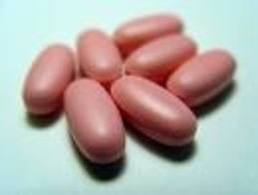Valnoctamide Effective in Mania, Maybe Without Valproate’s Side Effects
 Valproate (Depakote), also known as divalproex sodium and valproic acid (VPA), is highly effective in the treatment of mania, seizures, and migraine. However, its use in pregnant mothers can cause birth defects and developmental delay. A closely related compound, valnoctamide, may not pose the same dangers, but its efficacy in mania has only recently been investigated.
Valproate (Depakote), also known as divalproex sodium and valproic acid (VPA), is highly effective in the treatment of mania, seizures, and migraine. However, its use in pregnant mothers can cause birth defects and developmental delay. A closely related compound, valnoctamide, may not pose the same dangers, but its efficacy in mania has only recently been investigated.
Yuly Bersudsky et al. reported at the 4th Biennial Conference of the International Society for Bipolar Disorders conference in Sao Paulo, Brazil in March that valnoctamide was more effective than placebo as an add-on to risperidone for the treatment of mania.
Since there is now evidence that valnoctamide does work in mania, it is plausible that some of the shared characteristics of valproate and valnoctamide, such as increasing brain GABA and blocking sodium channels, are responsible for both drugs’ antimanic effects.
VPA is thought to cause birth defects through its epigenetic effects. The emerging field of epigenetics has shown that environmental factors can influence the structure of DNA or tightness of its packaging, and these alterations may even be passed on to the next generation.
VPA has epigenetic effects because in addition to being an anticonvulsant, it is also a potent histone deacetylase inhibitor (HDAC-I). HDAC-Is make DNA easier to transcribe by keeping acetyl from detaching from histones.
Valnoctamide, on the other hand, is an anticonvulsant that does not get converted to VPA, and is not an HDAC-I. Valnoctamide’s efficacy in mania suggests that VPA’s epigenetic effects (as an HDAC-I) do not account for its anticonvulsant or antimanic efficacy. Moreover, valnoctamide does not appear to be as terotogenic (causing birth defects) in animals as is VPA, and may ultimately be shown to be safer in pregnancy than VPA.
Editor’s Note: VPA is associated with increased risks of spina bifida and other major birth defects as well as major decreases in a child’s IQ (9 points on average). Neurologists suggest that all women of childbearing age and potential who are treated with VPA should take folic acid, B6, and B12 regularly in case they have an unplanned pregnancy. It is hoped that these vitamins might help prevent birth defects, but this has not been proven.
In any event, women of child-bearing age who are taking VPA should use reliable birth control regimens to avoid becoming pregnant. This is especially the case as mania can be associated with poor judgment and sexual indiscretions, making unplanned pregnancies more common.
Comments
Leave a Reply

